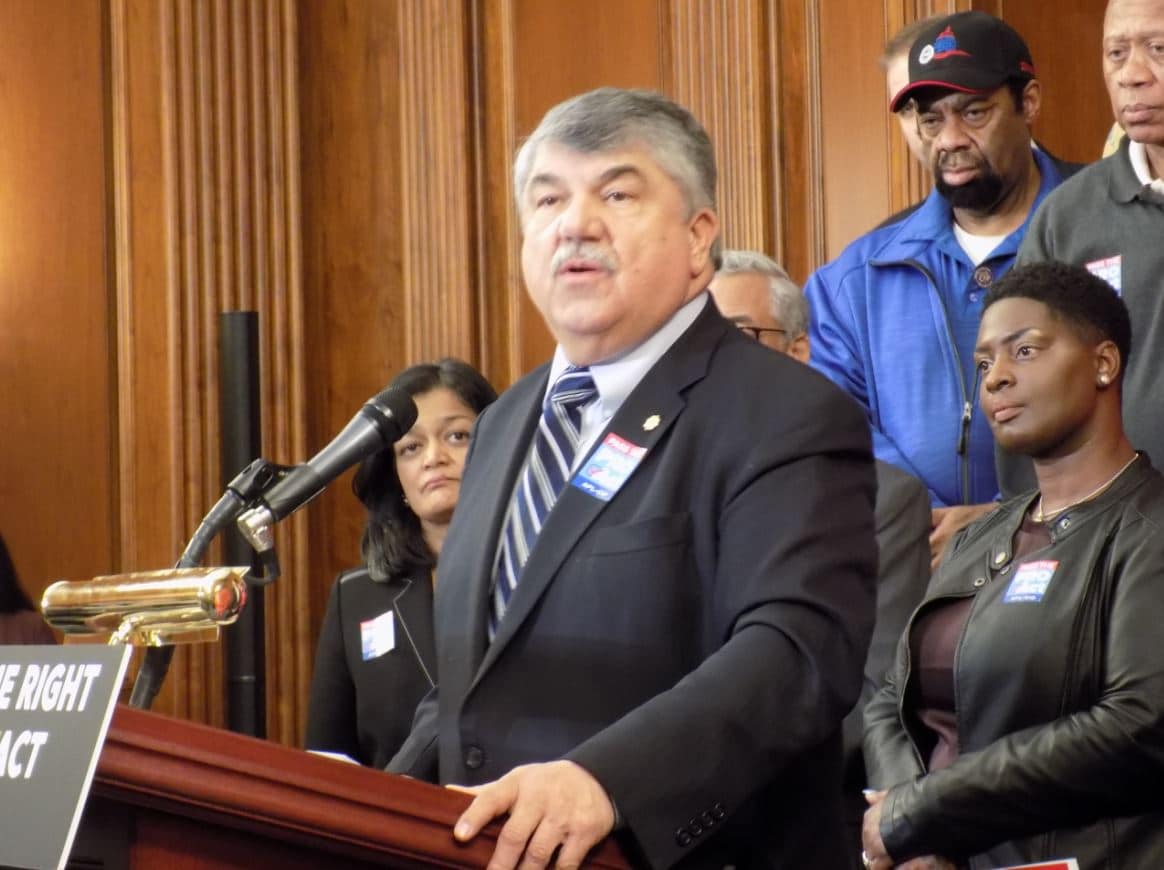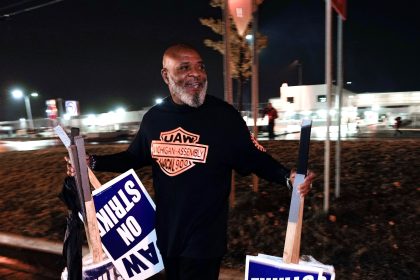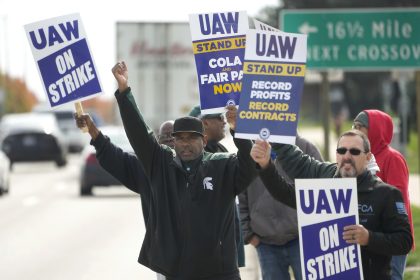Business Advocates Oppose Move to Make Union Organizing Easier

WASHINGTON — Norma Torres talked Monday about how union membership protected her family after they arrived from Guatemala in 1970 as refugees from a civil war that killed more than 200,000 people.
Her father, an electrician, was a union member who was able to support his children. She was a union steward while she worked for 18 years as a police dispatcher in Los Angeles.
“I won every single claim I brought against management because they were in the wrong,” she said during a congressional hearing. In one case, she led a 1994 campaign to require the hiring of bilingual 9-1-1 dispatchers.
As a member of the American Federation of State, County and Municipal Employees, she said she learned about cases where employees were treated worse than office equipment.
Now a Democratic congressional representative from California, Torres spoke in favor of a bill that would make it easier for workers to join unions or to be endowed with employee benefits.
Called the Protecting the Right to Organize Act (H.R. 842), the pending bill would empower the National Labor Relations Board to fine employers who violate a ban against retaliation toward workers who want to organize.
Other provisions would limit the number of workers who could be classified as independent contractors. Instead, they would be categorized as employees, meaning they are entitled to full benefits that include health insurance.
Employees who want to organize unions could bypass requirements for a secret ballot when there is evidence employers have violated labor regulations. Instead, the employees could simply check a yes or no vote on a card on whether to join a union and have it binding on employers.
The bill won approval in the House last year but failed in the then-Republican controlled Senate. Now Democrats can control the Senate vote.
The continuing Republican opposition showed during the hearing of the House Rules Committee Monday.
“It’s more accurate to call it a union boss wish list,” said Rep. Tom Cole, R-Okla.
He said the card check provision “would force a workplace to unionize,” even when some workers do not want to participate or to pay union dues. A better option than imposing unions on employers is for government policy to create job opportunities, Cole said.
Rep. Virginia Foxx, R-N.C., said H.R. 842, also known as the PRO Act, was unnecessary.
“Federal law already protects the rights of workers to organize,” Foxx said.
The bill also could be an inducement to corruption by union leaders who steal workers’ dues or who harass them if they resist union control of workplaces, she said.
“Union membership in the U.S. has been decreasing for over 60 years,” Foxx said. “It’s the failings of the unions.”
Rep. Mary Gay Scanlon, D-Pa., said the spending power of workers has eroded with their inability to protect their wages through union membership.
“The average family in my district is underwater by the end of the month,” she said.
Rep. Bobby Scott, D-Va., said “anti-worker attacks” by employers have resulted in the lowest union membership since the National Labor Relations Act was enacted in 1935. The NLRA guarantees private sector employees a right to organize into trade unions, engage in collective bargaining and take collective action such as strikes.
H.R. 842 “closes loopholes they use to exploit workers,” Scott said.
Nevertheless, business groups are putting pressure on Congress to stop the bill from winning approval.
The construction trade group Associated Builders and Contractors released a statement last week that said, “The PRO Act would impose undue costs on our nation’s small businesses at a time when they have been severely impacted by the COVID-19 pandemic and are striving to maintain their operations and provide jobs for millions of hardworking taxpayers.”
The U.S. Chamber of Commerce submitted a letter to congressional representatives Monday that said, “The PRO Act would impede the economic recovery through its many harmful labor and employment policies. The Chamber strongly urges you to vote against this deeply flawed bill.”
























